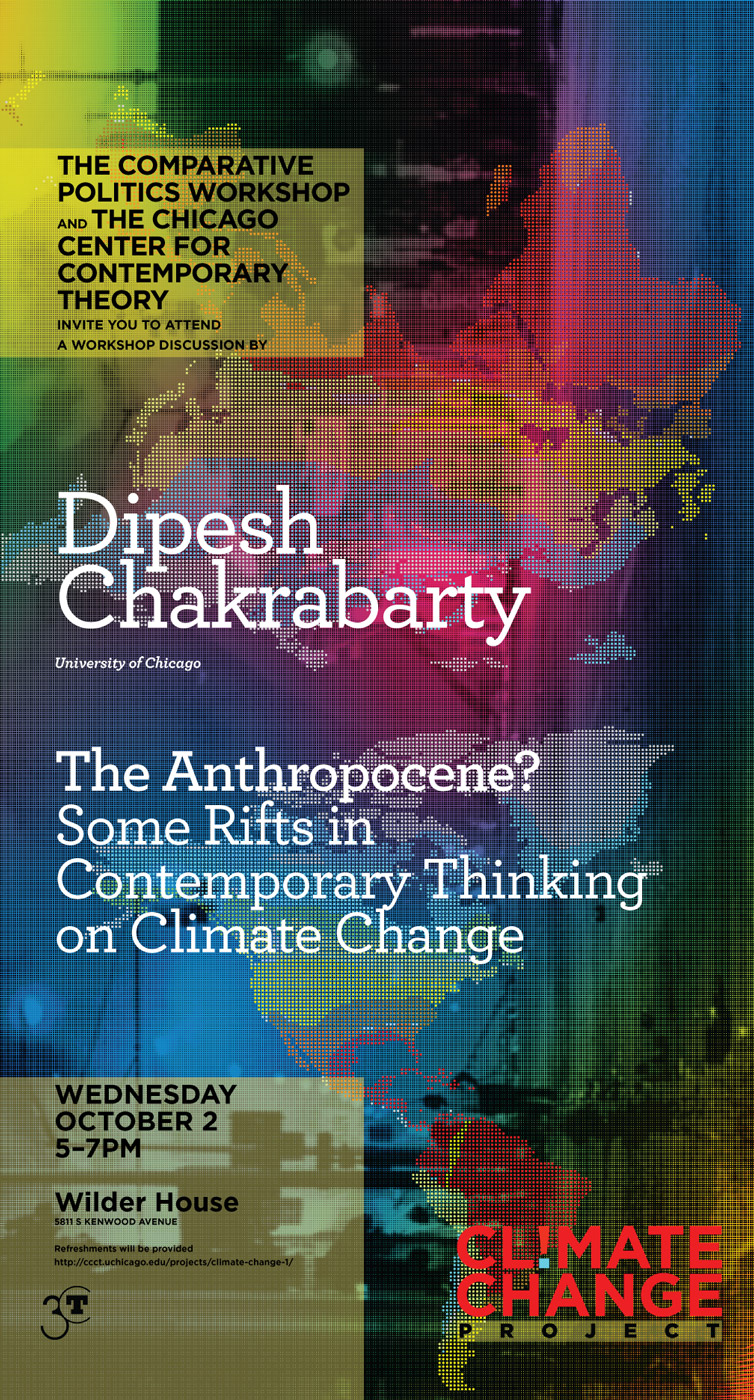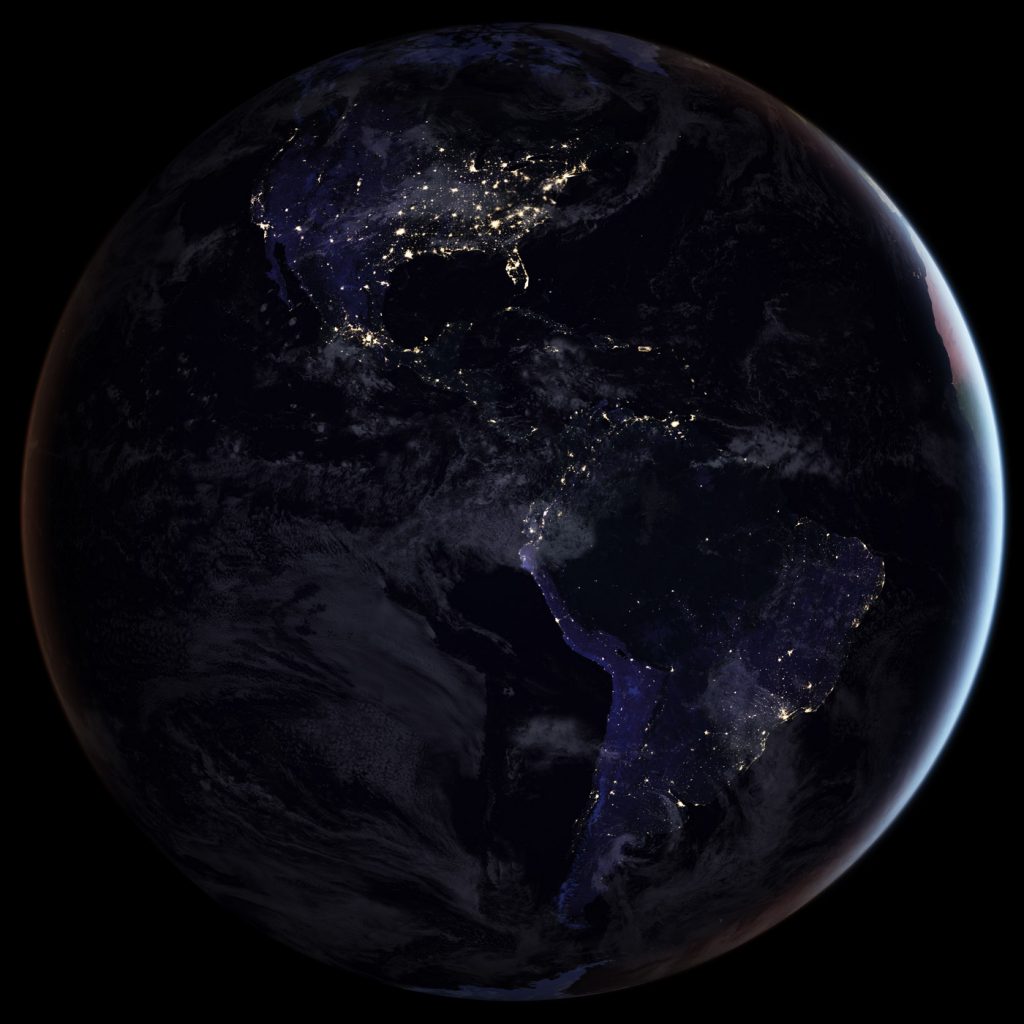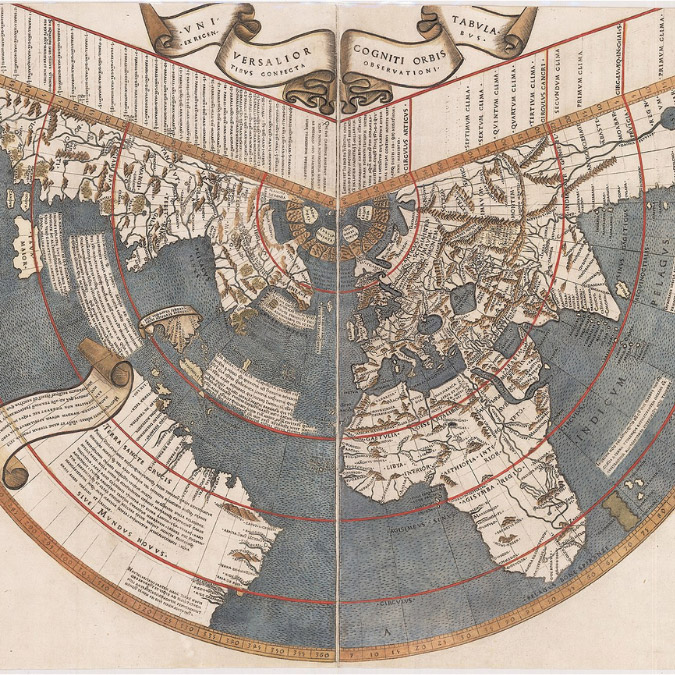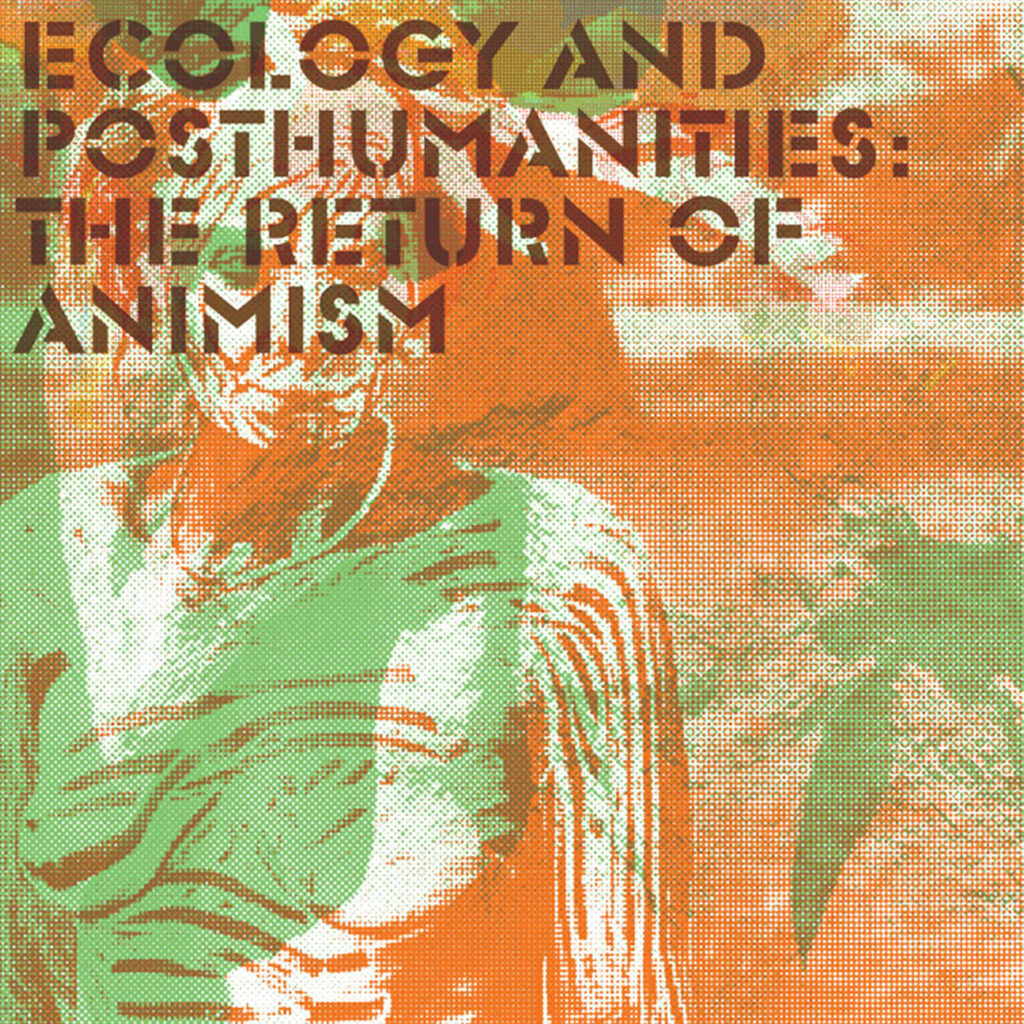Categories
Dipesh ChakrabartyThe Anthropocene?: Some Rifts in Contemporary Thinking on Climate Change
Wednesday, October 2, 2013, 5:00-7:00pmThe Comparative Politics Workshop and the Chicago Center for Contemporary Theory (3CT) invite you to a workshop discussion by Dipesh Chakrabarty, University of Chicago:
Chakrabarty is the Lawrence A. Kimpton Distinguished Service Professor in History and Department of South Asian Languages and Civilizations at the University of Chicago. He is also a Faculty Fellow at the Chicago Center for Contemporary Theory (3CT), where he is PI for 3CT’s Climate Change Project. Chakrabarty’s research is currently focused on three areas: he is in the process of completing a book on the history of “historical truth” in colonial India; he is working on two long-term projects: one on democracy and political thought in South Asia and the other on a cultural history of Muslim-Bengali nationalism; and he also working on a book-project concerning the implications of the science of climate change for historical and political thinking.
3CT’s Climate Change Project seeks to put debates about climate change in conversation with discussions of contemporary history in order to understand how an increasing sense of the environment’s vulnerability works to modify the stories scholars tell about the beginnings and trajectories of human civilizations. It is devoted to exploring differences between views of human history advanced in debates on climate justice rather than adjudicating scientific claims. Among the questions posed by the project’s interlocutors are the following: How has the discourse on climate change served to re-conceptualize humans as a geological force, and how has this idea qualified humanist histories of modernity and globalization? Is climate change to be explained as simply another instance of the selfishness of developed countries, or does it counsel a much longer term view of the human species? How do global histories of capital intersect with the species history of human beings? What are the implications of this intersection for new modes of historical understanding in the present, and how might understanding the interrelations between these various global processes inform local contexts of political action (such as political mobilizations around environmental change)? What can contemporary debates about both climate change and history tell us about human collectivity and cosmology, as well as the vexed, ever-ongoing search for a political universalism that includes the particular?
For an introduction to Chakrabarty’s approach to these issues, please see “The Climate of History: Four Theses,” Critical Inquiry, Winter 2009, pp. 197-222. A video lecture by Prof. Chakrabarty on the topic of the Anthropocene is also available here.



